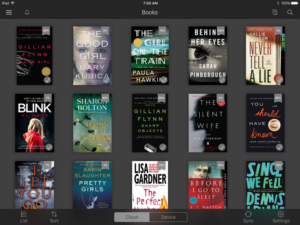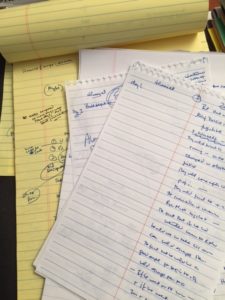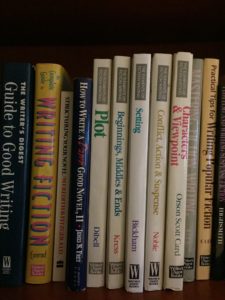 I’m going Behind the Scenes again with Part Two of my report on the Writers Boot Camp for which I signed up as part of my “epic” effort to produce a third thriller. Last week I explained Why I Signed Up. Today: I Look at Whether I Benefitted from the Exercise?
I’m going Behind the Scenes again with Part Two of my report on the Writers Boot Camp for which I signed up as part of my “epic” effort to produce a third thriller. Last week I explained Why I Signed Up. Today: I Look at Whether I Benefitted from the Exercise?
Straight off the top, I am happy to say I achieved both my objectives ( as explained below) in signing up for the online workshop, Agent One-on-One: First Ten Pages Boot Camp with the Writers Digest online workshops. As the description suggests, the idea was for authors to submit their first ten pages /first 2,500 words for a review by a group of professional literary agents. In this case, the agents were from the Talcott Notch Literary Agency, and included, Paula Munier, Gina Panettieri and Saba Sulaiman. Why only ten pages? Because if you can’t grab the attention of a literary agent, editor, or reader in the first 2,500 words, you’re toast!
How It Worked

On day one, authors were presented with a 60-minute video/audio tutorial by author and literary agent, Paula Munier, and an additional presentation by Andrea Hurst, also a published author and literary agent. The participating authors then submitted their first ten pages/2,500 words. Subsequently, the agents returned the submissions with their critiques, and authors were invited to re-submit their ten pages incorporating the edits and suggestions following an additional three-hour Q- and- A session with all three agents.
A week later, according to the Boot Camp rules, Paula, Gina and Saba were to offer one/two-line critiques of the re-submitted versions. They said that in some cases, participating authors would then be invited to submit their entire manuscripts for possible representation by the agency.
Writing a Thriller

As I wrote last week, I met and worked with Paula at an Algonkian Author-Mentor Novel Workshop in St. Augustine, Florida, which I attended in February, and which I wrote about in a post rating the workshop and in a post which was a survey by my fellow attendee authors on this website in March. At several sessions of the workshop, I regurgitated my pitch for my thriller, and was subjected to penetrating (read “uncomfortable but necessary”) questions from Paula and Michael Neff, the workshop director, which ultimately helped me hone and edit my story premise, hook and log line, and thus the narrative thrust of my thriller.
I returned home with great ideas — especially about developing my anatagonist’s storyline. And, then I sat and noodled. And, then I re-wrote my outline. And then, I studied my new outline, and wondered if I had allocated my antagonist enough new scenes?
And then, I decided I should open the novel with the antagonist ( as I did with my first two thrillers — which seemed to work for both novels.) I re-read another couple of “how-to” books including Paula’s The Writer’s Guide to Beginnings)
Procrastination or Learning the Craft?

I subscribed to another couple of writers’ blogs (K.M.Weiland’s www. helpingwritersbecomeauthors.com has become a favorite.) I selected seven psychological thrillers from my kindle (pictured) and read the opening sentences, paragraphs and pages. I thought carefully about why those openings had induced me to finish the books.
Sure, I was studying the craft, but I was also procrastinating. Of course, I was. It was right about that time I received an announcement about the First Ten Pages Boot Camp.
Info Dumping No-No
 Long story short (I hate that phrase, but it serves my purpose here because you may read my earlier posts about signing up for the Boot Camp here and here ) I submitted my first 2,500 words to Paula on deadline day; went to bed; and then woke with the worst sinking feeling in the world.
Long story short (I hate that phrase, but it serves my purpose here because you may read my earlier posts about signing up for the Boot Camp here and here ) I submitted my first 2,500 words to Paula on deadline day; went to bed; and then woke with the worst sinking feeling in the world.
My very first thought on waking was: “Crap! I sent in crap!” I realized I had committed one of the biggest faux pas for novel beginnings: I used my opening chapters for an info dump. Too much tell, not enough show!
I knew exactly why I had done it: I wanted to demonstrate to Paula that I had an answer to all the questions she and Michael Neff had raised about my plot and plot points at the novel workshop. But, sure enough, her critique zeroed right in on my blunder: “There is still too much info dumping… We don’t need to know everything about [the protagonists] and the guy who’s out to get them. Not right away… So trim that section a bit more , notably where you have burned inner monologue with info dumping.”
Back Story and Flashbacks
 The issue of back story or flash backs or info dumps is a question that came up from a number of participants during the Q-and-A discussion session. It’s an issue that concerns many writers, and many “how-to” books have been written about it. After all, if an author starts his/her story “in media res” or in the middle of things for dramatic impact, then how does an author get to detail the events that brought the protagonist to this dramatic point?
The issue of back story or flash backs or info dumps is a question that came up from a number of participants during the Q-and-A discussion session. It’s an issue that concerns many writers, and many “how-to” books have been written about it. After all, if an author starts his/her story “in media res” or in the middle of things for dramatic impact, then how does an author get to detail the events that brought the protagonist to this dramatic point?
Gina Panettieri put it this way in the discussion session: “If you can work the backstory in while moving your plot forward that’s the best of both worlds. I’m not opposed to flashbacks or moving back and forth in the time frame of the novel if the author can do it skilfully, but I hate stopping the plot to explain in exposition or have a flashback.”
Gina made it quite clear that it’s also a big mistake to pick your biggest dramatic scene and stick it in a prologue. “If it’s a sort of ‘hang- on- things- will- get -good -later -I -promise’ scene then it’s weak writing and should be cut.”
Best Is Yet To Come
Fortunately, I immediately understood Paula’s critique of my opening chapters, and recognized exactly where I should cut the info dumping sentences. I also realized that I would produce my very best opening chapters once I actually completed my manuscript; when I had the whole story in front of me. So, I did not take the opportunity to revise, edit or re-submit my opening to the First Ten Pages Boot Camp. I emailed Paula to thank her, and to say I wouldn’t be submitting revised pages just yet, but would like to “query” her when I was done.
Her response? “I look forward to seeing the manuscript when it’s finished.” I couldn’t have asked for a better reply — or a better kickstart. Translation to self: Write the damn thing already!
I agree. Write the damn thing already.
Okay. Okay. Trying my best.